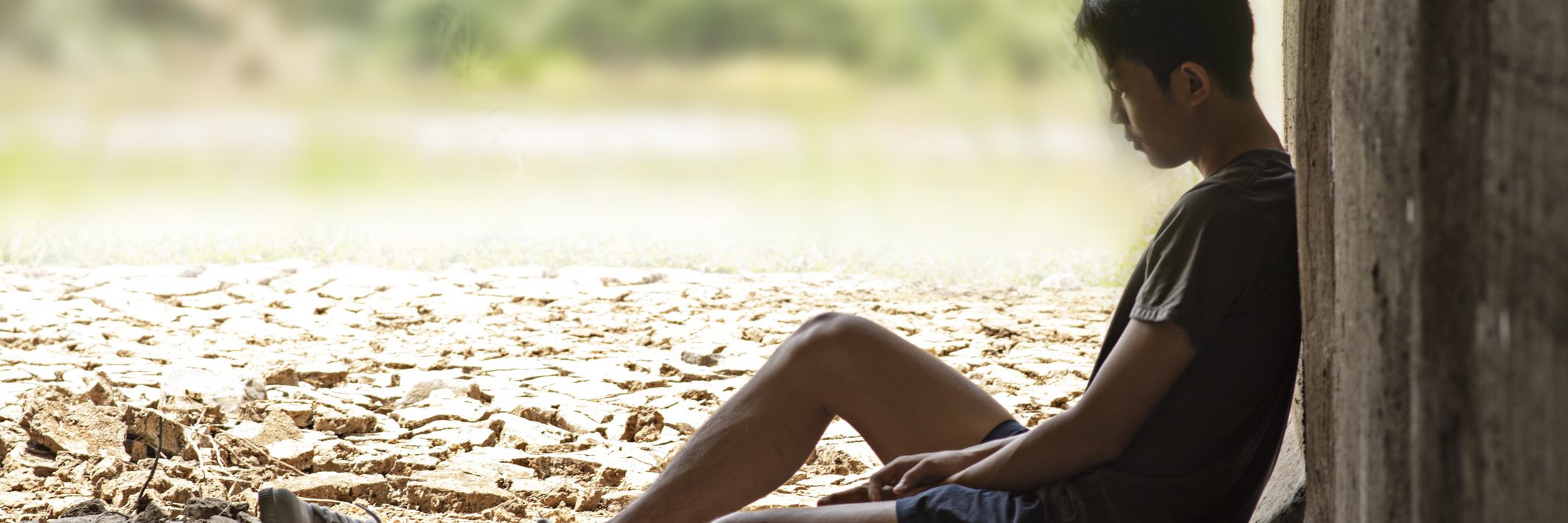As the parent of a teenage boy struggling with anxiety, I’ve made it my job (literally — I work in special education) to understand his struggles. Because I work with teachers, many who don’t or won’t get it and kids who struggle, and I’m a parent, I see every side of the battle.
At a rather heated individualized education program (IEP) meeting over a year ago, I was asked by one teacher how could I expect them to know when he was having an anxiety attack or just faking for attention. When I got myself together after hearing that, I simply answered that kids with anxiety — true anxiety — would never fake that feeling. I decided at that moment that I needed a simple analogy they could understand. On the fly, I described my son’s day to them like this: imagine waking up each morning with an empty plastic shopping bag next to you. As you get ready for your day, you pick up everything you see in front of you as you walk around. It doesn’t matter how insignificant it is: a piece of lint, a pebble, a shoe. You leave the house with a few things in the bag.
You get to school, and while waiting in the courtyard for the bell to ring, you accumulate a few more things that you happen upon, many discarded by peers. You put them in your bag. Walking through the halls, you continue to add to the load in the plastic bag. At some point, you look down and notice the bag is becoming full. Not only is it heavier, but the plastic is starting to stretch and tear in spots. You now begin to worry that you won’t be able to carry everything you find and that the bag will break at any moment, spilling everything for all to see. The problem is, you can’t stop yourself from gathering the little bits you come across. One by one, they add to the weight and strain of the bag.
By the end of your school day, the bag is overflowing with unwanted things, and you’re very concerned if it will hold together until you get home. Some days you make it just through the door and then drop the contents, sending them pouring out across the floor of the kitchen. Other days, the bag isn’t too tattered and you can easily tie it and toss it into the trash. Then there are the days the bag just wasn’t strong enough — the days when it all spills at your feet in front of a class full of peers.
Those are the days you dread because you know they will remember it and tease you for it. You also know that the teachers will blame you for delaying class, causing a scene and coldly tell you to get it together and let it go. Those three little words cut like a knife because no one wants to feel like this. No one chooses to carry the burdens of their daily life every waking moment. No one wants to look at that bag and worry it will fall apart. If it was as simple as “letting it go,” they would do it. But, they can’t. So, I said to those teachers, think before you speak. Think before you judge my child. Think of how you’d feel if, after the death of a pet, someone said “What’s the big deal? It’s just a dog.”
People of any age who struggle with anxiety (or any mental health issue) deserve the patience and understanding of others. Even if you don’t “get it,” understand they are trying to hold it together. Understand that what is no big deal to you can be life altering for them. Understand they need time to process their day and cope with setbacks. Don’t judge them. Don’t berate them. Don’t accuse them of faking, lying or trying to avoid tasks. Give them time, offer sincere encouragement, sit with them in silence. When they are ready, allow them to do what is needed. It may take time to break old habits, but compassion is really the best thing for someone dealing with anxiety. It can be the difference between ending a cycle of anxiety and pushing them further down the rabbit hole. Don’t add to the plastic bag. Offer to help carry it.
Editor’s note: This story has been published with permission from the author’s son.
We want to hear your story. Become a Mighty contributor here.
Thinkstock photo via lyongyuth

